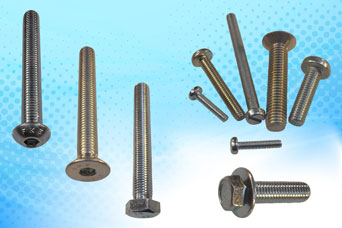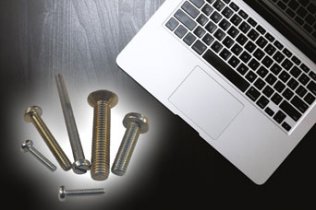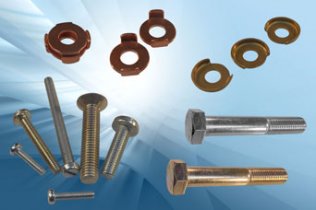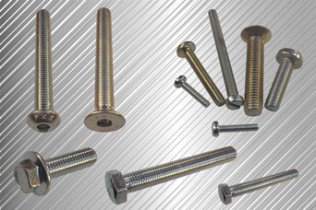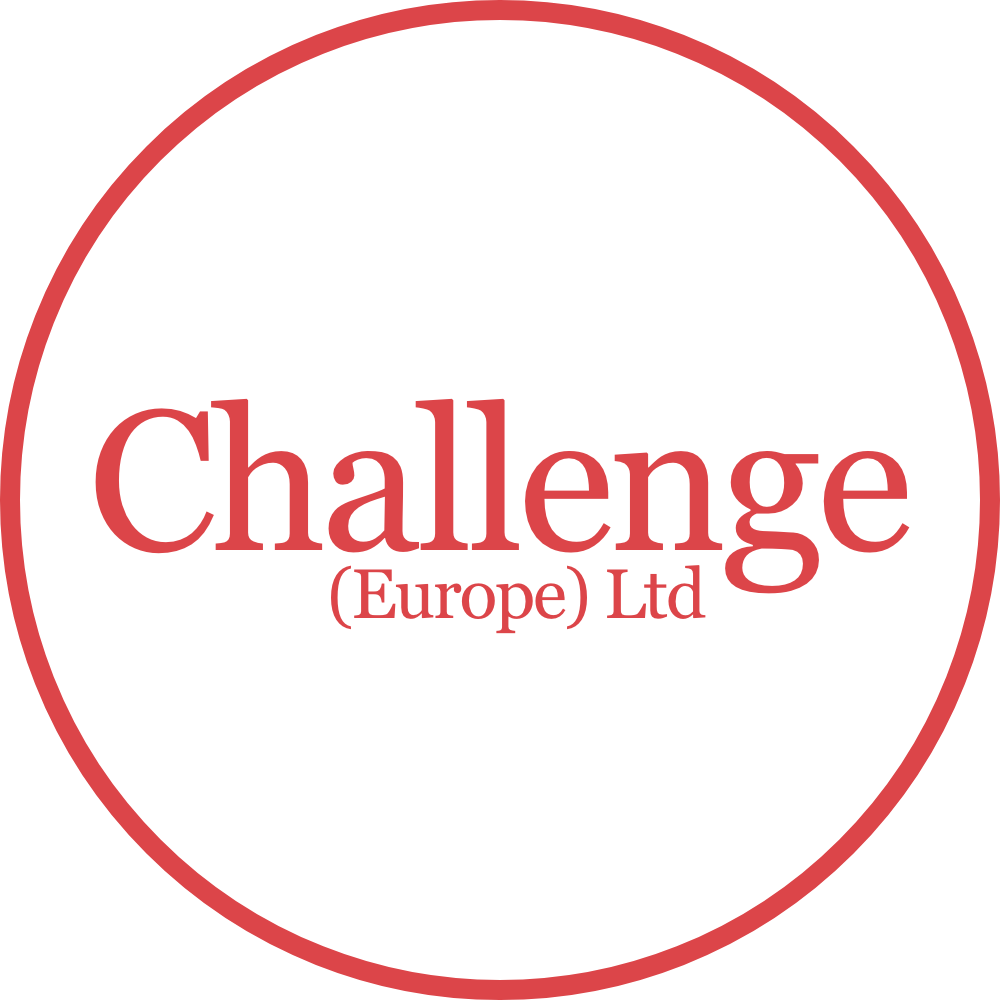Machine screws are used almost everywhere! They are ubiquitous in assembly roles world-wide, especially for fixing accessories to castings, fixing castings together, often with nuts – fixing covers in place – from marine situations to aerospace, packaging to electronics.
The materials choice begins with low-grade steel for general purpose on up to high-force situations requiring high-grade steel, elsewhere calling for brass or copper for electrical conductivity, then covering corrosive environments where a stainless steel is needed – even to very high temperature or extremely aggressive environments which may need exotic alloys such as Hastelloy, Elgiloy, Titanium etc.
Typical issues include vibration loosening but this is now reliably addressed by a range of friction-based or washer-type solutions. However, significant care is needed where electro-galvanic action may be envisaged, i.e. where a mix of different materials is envisaged with conflicting electro potential.
The basic format of threaded shank and load-spreading head is capable of extensive adaptation with choices of thread form – although typically these will be an ISO Metric specification. Screw heads however are subject to a very wide range of shapes and design concepts to reduce vibration loosening, facilitate automatic installation, resist vandalism/unauthorised removal, or to create a smoother, more easily cleaned surface, e.g. in the food industry, or to facilitate especially high torque settings, such as may be required in high-performance industries such as aerospace or automotive applications.
Contact the team at Challenge Europe for further information, pricing, delivery etc.

